How to CookBUILDING BLOCKS AND 100 SIMPLE RECIPES FOR A LIFETIME OF MEALS: A COOKBOOK
An empowering collection of 100 delicious, practical recipes that will teach young adults and kitchen novices how to cook for themselves—from a James Beard Award–winning chef and author.
Acclaimed chef, TV star, and dedicated father Hugh Acheson taught his teenage daughters that cooking is an essential life skill. But he also knew that people don’t need to know how to cook like a chef to feed themselves and their friends. Really, they only need to learn a handful of skills to enjoy a lifetime of cooking.
So, in How to Cook, Hugh distills the cooking lessons that everyone should master into twenty-five basic building blocks: easy-to-grasp recipes that can turn anyone, young or old, into a confident home cook. Each of these recipes teaches a fundamental skill, such as roasting or whisking together a classic vinaigrette, and each stands alone as a stellar back-pocket basic. After laying the groundwork, How to Cook then offers recipes that expand on these foundations, whether it’s remixing the flavors of one of the basic recipes, or combining a couple of them, to show you how you can produce a lifetime’s worth of dishes.
How to Cook is the book Hugh is going to give his kids when they leave home, knowing that with these 100 recipes, they’ll be prepared to feed themselves for the rest of their lives.
Hugh Acheson is the chef/partner of the restaurants Five & Ten, Empire State South, and By George in Athens and Atlanta, Georgia. He is winner of two James Beard Awards for Best Chef Southeast and Best American Cookbook, has been featured in numerous food and wine publications, and has appeared on Bravo’s Top Chef as a judge. Hugh is the author of The Broad Fork, A New Turn in the South, Pick a Pickle, The Chef and the Slow Cooker, and Sous Vide.
‘The book is just meant to be just a good core idea of what food is and how to nourish yourselves. And the difference between nutrition and nourishment is nourishment’s got that emotional component to it that is so beautiful about food. We don’t make memories over pizza pockets.”
Award winning Chef Hugh Acheson; Georgia resident restauranteur, Top Chef judge and hockey fan, took some time to chat about his new book How to Cook.
~~~~~~~~~~~~~~~~~~~~~~~
Booksaboutfood.com(BAF): Your book, it’s somewhat timely in the sense that you’re telling people, giving people’s directions,on how to cook since they are going to be in their house a lot of the time these days.
Hugh Acheson: Yeah. It’s six months late, I think. But yeah, I mean, it is pretty timely though. And the original genesis of the idea is what do you give to a kid who’s going off to college to make sure they have some sense of ability to nourish themselves? But it’s definitely applicable to a 50 year old person too, who doesn’t have any inkling of how to make food well. And it’s just really meant to diminish this idea that food is utterly complex, is beyond our ability, is inconvenient and expensive. All those things are so easily dismissed and they need to be.
BAF: Well, I was curious about the writing process, because you’re somewhat established, you know what you’re doing, know your way around the kitchen. What was it like? Where do you start? From your point view, was there any introspection in having to go back and start from the beginning?
Hugh Acheson: Yeah I think watching how people cook, how other people cook, and amateurs cook in a kitchen is kind of revelatory. And looking at what sells at the grocery store that is very simply made from scratch, yet have people don’t embark on doing on a regular basis. I mean, salad dressing is a billion dollar industry. Why? I have no idea. Making a salad dressing is the most simple thing in the two in the world. I think we’re just out to figure out how do I create a rudimentary cuisine with this idea of building blocks of technique, pulling people away from recipes and into just possibility of skills? So you can open any fridge and make something.
BAF: There’s some people I know, and you probably do too, that just don’t know how to boil water. How do you get them enthused?
Hugh Acheson: Well, they have no choice now. They have to feed themselves something. So if anything good comes out of a global pandemic, it’s that people are cooking more than ever at home, and that’s interesting to me. I think it’s a generational, it’ll be a massive generational boon to have those skillsets emanating again from households.
BAF: You talked about somebody going off to college. Was that the inspiration? Was one of your kids off to college and they needed a survival manual?
Hugh Acheson: One of my kids is virtually a freshmen this year at University of Toronto, but she is going from here and hopefully she’ll be up there in January after a brief quarantining situation, but that’s understandable. But yeah, it was. I wrote a home ec curriculum for a group that I started a number of years ago that was really meant to highlight, how do you give kids retainable knowledge and food to make their life easier later on? It’s how to roast a chicken, how to make a vinegarette, how to make a salad. And how do you do that in a retainable way? So we did it kind of like building blocks and really revamped this home ec curriculum, and it’s free online, and anybody can go and get it. It’s seedlifeskills.org. And this is kind of an emanation of that. That’s the next step in it. Well, how do you whittle it down to 24 steps that anybody can rearrange into good food.
BAF: You mentioned 24 steps. Apologize, I didn’t get a review copy of the book. So how did you break the recipes down?
Hugh Acheson: That was probably the most difficult part was figuring out what steps do you put in this? But I think selfishly I wrote about it in a way to say, well, this is what I cook every day. Look, food is just … I am never going to pinpoint the perfect list on technique because every culture cooks differently and every individual cooks differently in a different way, but these are the building blocks. And it’s just all like, it’s cooking pasta, it’s making a simple tomato sauce. It’s roasting tofu, a grilled cheese sandwich. Because all of those things are just basic ideas that you can build on. And if you know how to do these things like roasting vegetables or sauteing greens, or roasting a chicken, how to make polenta and grits, how to cook legumes, then we can take those as, hey, you learn that in the first section. Now the second section is, we’re going to take these three attributes of what you learned and put them together into this meal.
BAF: Was that hard to do for you to step back from your knowledge and say, this is square one? How do I do this from square one without imposing your expertise on that?
Hugh Acheson: You’re always going to, I mean, I think that you just want to make sure you’re writing for an audience that needs that one-on-one technique and pulling yourself back to the basics. Again, it goes back, the easiest way to come up with these things is an attempt to dispel this notion that food is difficult. If I stick in that vein, then teaching someone how to boil water is not above me at all. It shouldn’t be above anybody. It’s actually really easy to boil water.
BAF: So I’ve heard. So you mentioned the recipes briefly. How did you decide what would be suitable to go into a book like this?
Hugh Acheson: It really came down to a lot of personal taste on what I eat and what I think about when I step in front of a fridge and I’ve got half an hour to cook food at home and what am I going to do? I’ve got eggs and spinach and some leftover rice and a can of chickpeas. The ability to then take technique and crisp off the rice and saute the spinach and stew the chickpeas and poach an egg, and suddenly you’ve got a meal because you’ve got some leftover kimchi in the fridge. So it just was a way of … Obviously we all look upon things in a very subjective way, but this book was meant to be like, what do I see when I open a fridge? What are the possibilities in simple terms of what I want to eat? I don’t cook fancy food at home. So it’s pretty rote, good food, healthy food.
BAF: So it sounds like its really for those people who, almost sounds like for the people who are on their own for the first time.
Hugh Acheson: Yeah, it is. But it’s also, I’ve had so many people say well, I’ve got a PhD, but I still need this book because I have no idea. And that happens. It’s like, we’re all brilliant humans in so many ways, but obviously our brilliance lies in different domains. And some people just never really figured out how to cook but figured out quantum mechanics. That’s great. I’m just going to teach you how to cook. It’s really easy.
BAF: Wwas this fun to do? You’ve written some other books.
Hugh Acheson: It is. They’re always fun to do. The action of putting it down on paper and then working with the design team and photographers and then recipe testing them out, it’s always arduous, and it’s a push to get it done. And then the biggest push is just the actual core writing, which I can procrastinate better than anyone on the planet.
But it’s still really enjoyable. And this one’s great because it’s actually a really inexpensive book. In the States it’s $19.99. So it’s meant to be really eminently sellable. It’s the type of book that people are buying two, three, four copies to give to all their kids or their cousins or their nieces and nephews. And that to me is totally cool. But if I can teach somebody how to not completely murder salmon every time they put it in a pan, then I’m doing something good in the world.
BAF: Can I ask what’s what’s next? What’s on the horizon?
Hugh Acheson: These days, it’s still in the midst of the COVID era, so I’m going to go work as a poll worker on election day. And I’m third in command at my precinct. We’re precinct workers. And in the meantime, we’re doing a lot of organizing around food for voters and just giving back to the community as it is. And then I do a lot of virtual demos and things like that these days. But then run restaurants and do consulting and work with a couple of different marketing teams on different endeavors. But it’s pretty much par for the course, but it’s definitely wearing more hats than usual.
BAF: I might’ve missed that you want people to know about the book?
Hugh Acheson: No, I think that’s good. I mean, I think the book is just meant to be just a good core idea of what food is and how to nourish yourselves. And the difference between nutrition and nourishment is nourishment’s got that emotional component to it that is so beautiful about food. We don’t make memories over pizza pockets. So this is the book to teach you how to make real food and in a really pretty efficient way.
BAF: Yeah. It certainly sounds like you’re bringing a touch of home to people who are away from home.
Hugh Acheson: Yep. I am.
~~~~~~~~~~~~~~~~~
© Booksaboutfood.com 2020


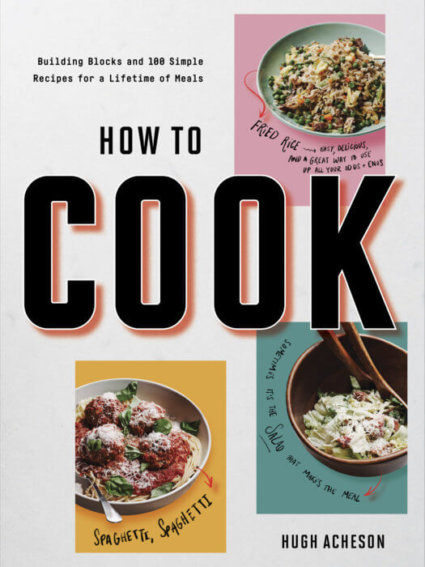


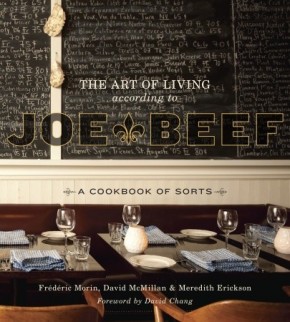
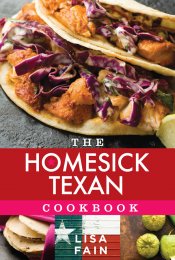
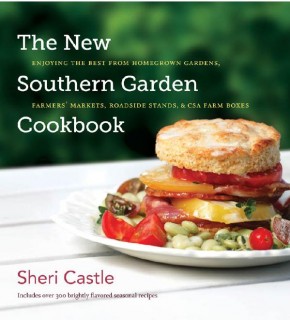
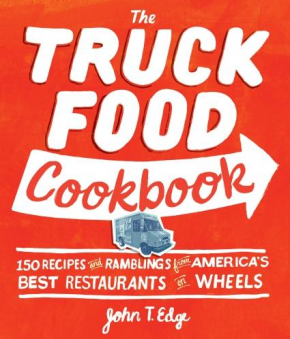
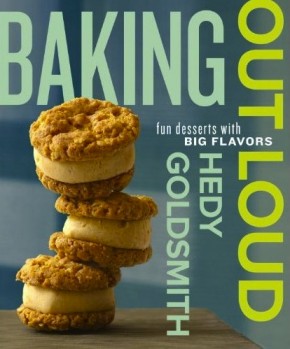
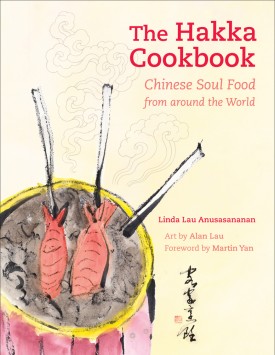
Leave a Reply